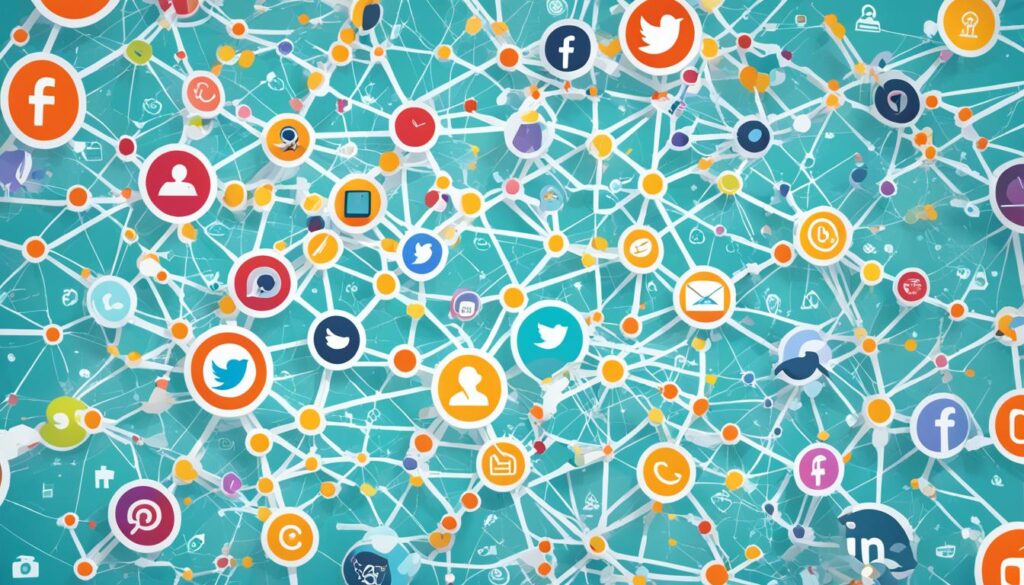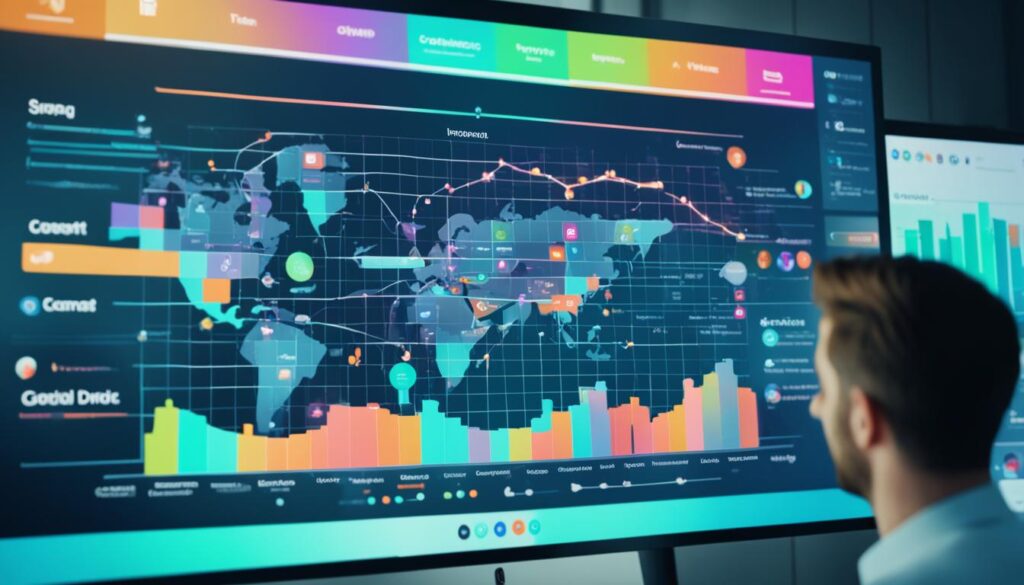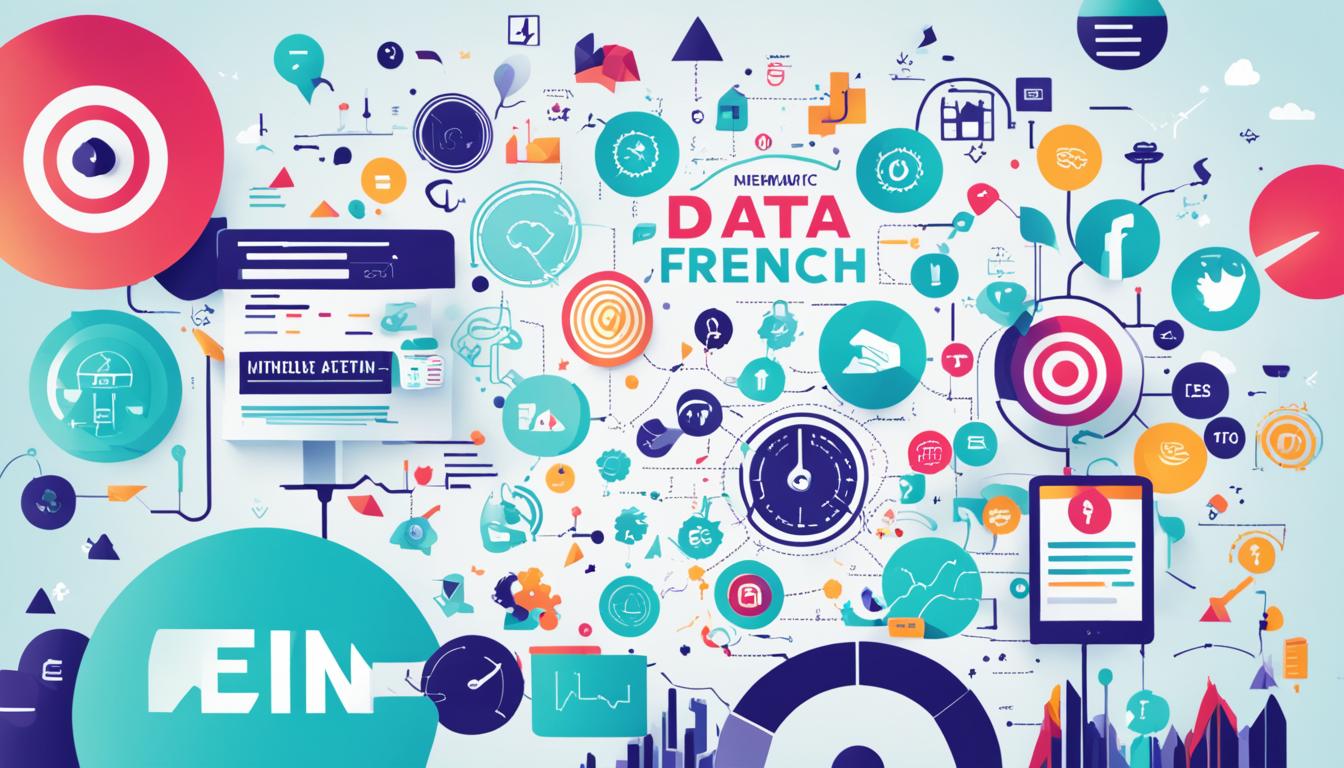In today’s digital age, businesses are constantly exploring new strategies to maximize their reach and engage with their target audience. One such strategy that has gained immense popularity is influencer marketing. By leveraging the power of social media influencers, brands can effectively promote their products and services to a wider audience.
However, identifying the right influencers and optimizing marketing campaigns can be a daunting task. This is where big data and data analytics come into play. With the help of AI-powered tools and advanced analytics, businesses can easily navigate through the vast amount of data available and make informed decisions.
In this article, we will dive deep into the world of big data and influencer marketing. We will explore how data analytics can be used to identify the perfect influencers for your brand, develop a personalized content strategy, and measure the effectiveness of your campaigns. Whether you are a seasoned marketer or new to the game, this article will provide practical tips and insights to help you maximize your reach and achieve better results.
Key Takeaways:
- Big data and data analytics play a crucial role in optimizing influencer marketing campaigns.
- By leveraging AI-powered tools, businesses can easily identify the right influencers for their brand.
- Data analytics allows brands to develop a personalized content strategy based on the preferences of their target audience.
- Measuring the effectiveness of influencer campaigns is made easier with the help of data analytics.
- By embracing big data and influencer marketing, brands can maximize their reach and achieve better results.
The Power of Big Data Analytics in Influencer Marketing
AI-powered analytical tools play a pivotal role in leveraging the potential of big data analytics in influencer marketing. By harnessing the power of these tools, businesses can validate millions of data points encompassing influencers’ profiles, content, audience demographics, and past performance. This enables brands to make data-driven decisions and connect with the most suitable influencers for their campaigns, maximizing the success factors set by the brand.
With the utilization of powerful AI-driven technology, influencer scouting becomes more efficient and effective. These tools can analyze vast amounts of data swiftly and accurately, filtering through countless profiles, posts, and engagement metrics. By doing so, brands can identify the most relevant influencers to collaborate with, ensuring an authentic and impactful partnership.
Moreover, big data analytics empowers brands to personalize content and engage with their target audience on a more profound level. By analyzing data related to audience preferences, behavior, and interests, businesses can create tailored and compelling content that resonates with their followers. This personalized approach enhances the chances of building a meaningful connection and driving higher engagement rates.
Analyzing the efficiency and return on investment (ROI) of influencer marketing campaigns is another valuable application of big data analytics. By tracking and measuring key performance metrics such as engagement rates, conversions, and brand lift, brands can gain valuable insights into the effectiveness of their campaigns. This data-driven approach allows them to optimize their strategies, allocate resources more efficiently, and achieve better ROI.
Overall, big data analytics powered by AI revolutionizes influencer marketing by providing brands with the tools to make informed decisions, boost personalization, maximize efficiency, and drive better results. The integration of big data analytics in influencer marketing strategies enables businesses to capitalize on the power of data and take their campaigns to new heights of success.

Highlight Quote:
“With AI-driven analytical tools, brands can connect with the most suitable influencers, personalize content, and measure efficiency for better ROI.”
Leveraging Big Data for Influencer Identification and Personalization
Finding a suitable influencer that fits a brand’s offering and has an ideal following that appeals to the target audience can be challenging. However, with the advent of AI-powered influencer marketing platforms, this process has become more efficient and effective. These platforms leverage Big Data and perform integrations to create a comprehensive picture of potential influencers.
AI-powered influencer marketing platforms build creator personas based on various parameters such as location, genre, and content relevance. By analyzing large data sets, these platforms can identify influencers who align with a brand’s values and target audience. With this information, businesses can make data-driven decisions about which creators to collaborate with.
“AI-powered influencer marketing platforms leverage Big Data to identify and partner with the most relevant influencers.”
Once influencers are identified, Big Data can also be leveraged to personalize the content that is shared. By analyzing audience preferences and behavior patterns, businesses can create tailored content that resonates with their target audience. Personalized content helps build a stronger connection between the brand and the audience, increasing engagement and driving better results.
Benefits of Leveraging Big Data for Influencer Identification and Personalization
- Efficiently identify influencers based on location, genre, and content relevance.
- Make data-driven decisions about influencer partnerships.
- Create personalized content that resonates with the target audience.
- Build a stronger connection between the brand and the audience.
- Increase engagement and drive better results.
By leveraging Big Data, businesses can optimize influencer marketing campaigns by partnering with the most relevant influencers and delivering personalized content. The use of AI-powered influencer marketing platforms streamlines the identification process, ensuring that brands reach their target audience effectively.

| Influencer Identification and Personalization using Big Data | Benefits |
|---|---|
| Efficient identification of influencers based on location, genre, and content relevance. | Streamlined influencer partnerships |
| Personalization of content based on audience preferences and behavior patterns. | Increased audience engagement |
| Stronger connection between the brand and the audience. | Better campaign results |
Measuring Campaign Effectiveness with Big Data Analytics
In today’s digital landscape, big data analytics and AI have transformed the way brands measure the effectiveness of their influencer marketing campaigns. With the ability to analyze engagement rates, conversions, and other performance metrics, businesses can gain valuable insights into which influencers and campaigns are driving the best return on investment (ROI). This data-driven approach allows brands to make informed decisions and optimize their strategies for maximum impact.
One of the key benefits of leveraging big data analytics is the ability to track and measure campaign data in real-time. Whether it’s monitoring engagement levels, tracking sales conversions, or assessing views and impressions, having access to accurate and timely performance data is crucial in understanding what’s working and what’s not. By measuring these performance metrics, brands can identify areas for improvement and make data-backed decisions to optimize their campaigns.
Engagement rates, in particular, provide valuable insights into the effectiveness of influencer marketing campaigns. By analyzing metrics such as likes, comments, shares, and click-through rates, brands can understand the level of audience interaction and interest generated by specific influencer partnerships. This information helps brands identify influencers who are truly resonating with their target audience and adjust their strategies accordingly.
“Big data analytics enables brands to gain a deeper understanding of their audience and the impact of influencer campaigns. By measuring engagement rates, conversions, and other performance metrics, brands can make data-driven decisions to optimize their influencer marketing strategies.”
Conversions are another vital performance metric that can be measured using big data analytics. Whether it’s tracking website visits, sign-ups, or purchases, analyzing conversion rates provides valuable insights into the actual impact that influencer marketing campaigns have on driving desired actions. By monitoring conversion data, brands can identify influencers and campaigns that are delivering the highest returns and allocate resources accordingly.
By harnessing the power of big data analytics, brands can gain a comprehensive understanding of the effectiveness of their influencer marketing campaigns. This not only allows them to evaluate the ROI of their partnerships but also provides insights for future campaign optimization. With data-driven decision-making, brands can continuously refine their strategies, identify high-performing influencers, and maximize the impact of their influencer marketing efforts.
Key Takeaways:
- Big data analytics and AI enable brands to measure the effectiveness of influencer marketing campaigns.
- Tracking engagement rates, conversions, and other performance metrics provides insights for campaign optimization.
- Engagement rates help identify influencers who resonate with the target audience.
- Conversions track the actual impact of influencer campaigns on driving desired actions.
- Data-driven decision-making allows brands to optimize influencer partnerships and maximize ROI.
The Future of Influencer Marketing with AI and Big Data
AI and big data analytics are revolutionizing the field of influencer marketing, paving the way for unprecedented growth and success. By harnessing the power of these advanced technologies, businesses can make informed decisions, maximize their reach, and drive better results. Let’s explore how the future of influencer marketing is being shaped by AI and big data analytics.
One of the key benefits of using AI and big data analytics in influencer marketing is the ability to analyze vast amounts of data. By leveraging these tools, businesses can gain valuable insights into the preferences and behaviors of their target audience. This enables them to make more informed decisions about which influencers to collaborate with, ensuring they reach the right people with their brand message.
AI and big data analytics provide businesses with the tools to measure the effectiveness of their influencer marketing campaigns. By analyzing data such as engagement rates, conversions, and other performance metrics, brands can evaluate the success of their strategies and make adjustments as needed.
In addition to measuring campaign effectiveness, AI and big data analytics enable businesses to create personalized content tailored to their audience’s preferences. By analyzing data on consumer behavior, interests, and demographics, brands can deliver highly relevant and engaging content that resonates with their target audience.
Furthermore, AI-powered tools help businesses optimize their ad spend by identifying the most cost-effective strategies. By analyzing data on ad performance and audience engagement, brands can allocate their marketing budget to the most impactful campaigns, ensuring maximum return on investment.
Benefits of AI and Big Data Analytics in Influencer Marketing:
- Improved decision-making: AI and big data analytics provide valuable insights to make informed decisions about influencer collaborations.
- Enhanced campaign effectiveness: By measuring campaign performance, brands can optimize their strategies and achieve better results.
- Personalized content: Analyzing consumer data allows for the creation of tailored content that connects with the target audience.
- Optimized ad spend: AI-powered tools help brands allocate their budget efficiently for maximum ROI.
As the future of influencer marketing unfolds, it is clear that AI and big data analytics will play a vital role in driving success. By leveraging these technologies, businesses can make informed decisions, create personalized content, and optimize their marketing efforts. Embrace the power of AI and big data analytics to stay ahead of the competition and achieve remarkable results in the world of influencer marketing.

The Role of Big Data Analytics in Filtering Out Irrelevant Content and Data
Big data analytics plays a crucial role in influencer campaigns by helping brands filter out irrelevant content and data. With social media platforms inundated with vast amounts of data, it becomes essential for brands to analyze and identify relevant content that aligns with their campaign goals. However, many marketers face challenges in differentiating between genuine influencers and those who may not deliver the desired impact.
Big data analytics provides a solution to this problem by analyzing key metrics such as engagement rates and follower growth rates. These insights allow brands to identify influencers with real influence and weed out those who might not deliver the desired results. By leveraging big data analytics, brands can optimize their influencer campaigns and ensure that their message reaches the right audience.
“Big data analytics enables brands to cut through the noise and focus on influencers who truly have an impact on their target audience.”
By filtering out irrelevant content and data, brands can allocate their resources more effectively while ensuring that their influencer campaigns deliver maximum results. This not only saves time and effort but also optimizes the return on investment (ROI) for influencer marketing efforts.
Benefits of Using Big Data Analytics in Influencer Campaigns
Here are some key benefits that big data analytics brings to influencer campaigns:
- Accurate influencer identification: Big data analytics empowers brands to identify influencers who have a genuine impact on their target audience, ensuring that their campaigns reach the right people.
- Data-driven decision making: By leveraging data insights, brands can make informed decisions about which influencers to collaborate with, maximizing the chances of campaign success.
- Optimized resource allocation: Filtering out irrelevant content and data enables brands to focus their resources on influencers who can deliver the desired results, maximizing the return on investment.
- Improved campaign effectiveness: By working with influential creators who resonate with their target audience, brands can improve engagement rates, increase conversions, and drive better performance metrics.
When it comes to influencer campaigns, big data analytics brings a data-driven approach that helps brands make strategic decisions, increase campaign effectiveness, and achieve their marketing objectives. By leveraging this powerful tool, brands can optimize their influencer marketing efforts and ensure that every campaign achieves maximum impact.

| Metrics | Traditional Approach | Big Data Analytics Approach |
|---|---|---|
| Engagement Rates | Manual calculation, prone to errors and limitations in data analysis | Automated analysis, accurate measurement, and insights for informed decision making |
| Follower Growth Rates | Manual tracking, time-consuming, and limited scope | Real-time tracking, comprehensive data analysis, and identification of influencers with genuine growth |
| Campaign ROI | Inaccurate measurement, difficulty in attributing ROI to specific influencers | Precise ROI measurement, identification of high-performing influencers, and optimal resource allocation |
Conclusion
AI and big data analytics have revolutionized the field of influencer marketing, offering brands powerful tools to optimize their campaigns and achieve better results. By harnessing the power of big data and AI, businesses can effectively identify suitable influencers, personalize content, measure campaign effectiveness, and make informed decisions.
The future of influencer marketing lies in the seamless integration of AI and big data analytics. These technologies enable brands to maximize their reach and target the right audience with precision. Big data analytics allows businesses to analyze vast amounts of data, providing valuable insights that inform influencer selection, content optimization, and ad spend allocation.
With AI-powered tools, companies can streamline influencer identification, marketplace analysis, and campaign monitoring. AI algorithms analyze influencer profiles, content, and audience data to ensure brands collaborate with the most relevant and authentic influencers. By leveraging big data and AI, businesses can optimize their influencer marketing strategies, achieve better engagement rates, and ultimately drive higher conversions.
FAQ
How can big data analytics be used in influencer marketing?
Big data analytics can be used in influencer marketing to analyze data and make more informed decisions about which influencers to work with, measure the effectiveness of campaigns, personalize content, and optimize ad spend.
What is the role of AI-powered tools in influencer marketing?
AI-powered tools play a crucial role in influencer marketing by validating data across influencers’ profiles, content, audience, and past performance. These tools can match the appropriate influencers’ persona to maximize success factors set by the brand.
How can big data help in influencer identification and personalization?
Big data can help in influencer identification and personalization by allowing businesses to leverage AI-powered influencer marketing platforms that perform integrations and build creator personas based on parameters such as location, genre, and content relevance.
How can big data analytics help in measuring campaign effectiveness?
Big data analytics can help in measuring campaign effectiveness by analyzing engagement rates, conversions, and other metrics. This data allows brands to determine which influencers and campaigns drive the most ROI and adjust their strategies accordingly.
What does the future hold for influencer marketing with AI and big data?
The future of influencer marketing lies in leveraging AI and big data analytics to make more informed decisions, optimize campaigns, and achieve better results. These tools enable brands to reach a wider audience and maximize their reach.
How does big data analytics filter out irrelevant content and data in influencer campaigns?
Big data analytics helps brands filter out irrelevant content and data in influencer campaigns by allowing them to analyze and identify relevant content. This ensures that marketers can differentiate between genuine and fake influencers and make informed decisions.
What are the benefits of using AI and big data analytics in influencer marketing?
The benefits of using AI and big data analytics in influencer marketing include optimized influencer selection, personalized content, improved campaign effectiveness measurement, and better decision-making based on data-driven insights.








